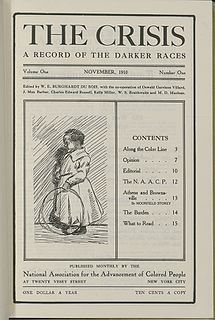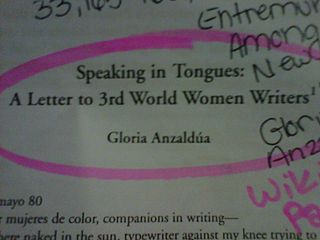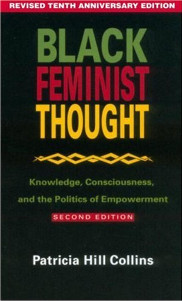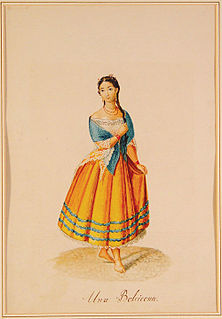
Brothers Keepers is a German-based transnational anti-racism project, bringing together hip hop, reggae and soul musicians, headed primarily by Afro-Germans.

The Crisis is the official magazine of the National Association for the Advancement of Colored People (NAACP). It was founded in 1910 by W. E. B. Du Bois (editor), Oswald Garrison Villard, J. Max Barber, Charles Edward Russell, Kelly Miller, W. S. Braithwaite, and Mary Dunlop Maclean. The Crisis has been in continuous print since 1910, and it is the oldest black oriented magazine in the world. Today, The Crisis is "a quarterly journal of civil rights, history, politics and culture and seeks to educate and challenge its readers about issues that continue to plague African Americans and other communities of color."

Womanism is a social theory based on the history and everyday experiences of black women. It seeks, according to womanist scholar Layli Maparyan (Phillips), to "restore the balance between people and the environment/nature and reconcil[e] human life with the spiritual dimension". The writer Alice Walker coined the term womanist in a short story, "Coming Apart", in 1979. Since Walker's initial use, the term has evolved to envelop varied, and often opposing interpretations of conceptions such as feminism, men, and blackness.
Hazel Vivian Carby is a professor of African American Studies and of American Studies. She serves as Charles C & Dorathea S Dilley Professor of African American Studies & American Studies at Yale University.

The Souls of Black Folk is a 1903 work of American literature by W. E. B. Du Bois. It is a seminal work in the history of sociology, and a cornerstone of African-American literature.
Black feminism is a school of thought stating that sexism, class oppression, gender identity and racism are inextricably bound together. The way these concepts relate to each other is called intersectionality, a term first coined by legal scholar Kimberlé Crenshaw in 1989. In her work, Crenshaw discussed Black feminism, which argues that the experience of being a black woman cannot be understood in terms of being black or of being a woman. Instead, Crenshaw argued that each concept should be considered independently while including how interacting identities frequently compound upon and reinforce one another.
Chicana feminism, also called Xicanisma, is a sociopolitical movement in the United States that analyzes the historical, cultural, spiritual, educational, and economic intersections of Mexican-American women that identify as Chicana. Chicana feminism challenges the stereotypes that Chicanas face across lines of gender, ethnicity, race, class, and sexuality. Most importantly, Chicana feminism serves as a movement, theory and praxis that helps women reclaim their existence between and among the Chicano Movement and American feminist movements.

This Bridge Called My Back: Writings by Radical Women of Color is a feminist anthology edited by Cherríe Moraga and Gloria E. Anzaldúa. First published in 1981 by Persephone Press, the second edition was published in 1983 by Kitchen Table: Women of Color Press. The book's third edition was published by Third Woman Press until 2008, when its contract with Third Woman Press expired and it went out of print. In 2015, the fourth edition was published by State University of New York Press, Albany.

Borderlands/La Frontera: The New Mestiza[1987] is a semi-autobiographical work by Gloria E. Anzaldúa that includes prose and poems detailing the invisible "borders" that exist between Latinas/os and non-Latinas/os, men and women, heterosexuals and homosexuals, and other groups.

Speaking in Tongues: A Letter to 3rd World Women Writers is a letter written by Gloria E. Anzaldúa. The letter was drafted in 1979 and was published in Anzaldúa’s feminist anthology This Bridge Called My Back: Writings by Radical Women of Color (1981). Writing this essay in the format of a letter, Anzaldua urges the reader to “write from the body” and she connects her body to other bodies, creating a community of embodied people. This essay is addressed to women of color as she shows sympathy, encouragement, and words of wisdom towards them. The essay addresses women of color and encourages these women to make their personal, embodied experiences visible in the text. The reader must also allow the text to enter herself, if the reader chooses to enter the text.

Black Feminist Thought: Knowledge, Consciousness and the Politics of Empowerment is a 1990 book by Patricia Hill Collins.

Women in Ecuador are generally responsible for the upbringing and care of children and families; traditionally, men have not taken an active role. Ever more women have been joining the workforce, which has resulted in men doing some housework, and becoming more involved in the care of their children. This change has been greatly influenced by Eloy Alfaro's liberal revolution in 1906, in which Ecuadorian women were granted the right to work. Women's suffrage was granted in 1929.
Chela Sandoval, associate professor of Chicana Studies at University of California, Santa Barbara, is a noted theorist of postcolonial feminism and third world feminism. Beginning with her 1991 pioneering essay 'U.S. Third World Feminism: The Theory and Method of Oppositional Consciousness in the Postmodern World' Sandoval emerged as a significant voice for women of color and decolonial feminism.

Feminism in Latin America is a collection of movements aimed at defining, establishing, and achieving equal political, economic, cultural, personal, and social rights for Latin American women. This includes seeking to establish equal opportunities for women in education and employment. A feminist advocates or supports the rights and equality of women.
Queer of color critique is a methodology that recognizes the intersections of race, gender, class, sexuality, capital, and nation, and disidentifies with the universality of social categories present in canonical sociology and historical materialism. Roderick Ferguson is credited with coining this term in his 2004 book Aberrations in Black, and draws from woman of color feminism, postcolonial studies, queer theory and African American studies. In his critique of canonical sociology, Ferguson argues that racialized heteronormativity and heteropatriarchy has played a conspicuous role in shaping sociology and social policy, and recognizes its intersection with revolutionary nationalism. Queer of color critique operates as a method for building unlikely coalitions across different identity categories. In framing queer of color critique, Ferguson draws from Barbara Smith and the Combahee River Collective's use of coalitional politics to address gender, race, and sexuality in context with capitalist expansion.
The Feminist Studies Department at the University of California, Santa Cruz constitutes one of the oldest departments of gender and sexuality studies in the world. It was founded as a women's studies department in 1974. It is considered among the most influential departments in feminist studies, post-structuralism, and feminist political theory. In addition to its age and reputation, the department is significant for its numerous notable faculty, graduates, and students.
Delia Rosa Zamudio Palacios is an Afro-Peruvian trade unionist and leader in the activism for the rights of Afro-Peruvian women. She was the first woman to become the head of the General Confederation of Workers of Peru. She has worked since the 1970s to improve the human and civil rights of Afro-Peruvians and working women. As a founder of the Casa de Refugio San Juan de Lurigancho she has worked to assist victims of domestic and sexual violence. She was recognized by the Ministry of Culture for her contributions with the Meritorious Personality of Culture Award in 2014.

Emma Pérez is an American author and professor, known for her work in queer Chicana feminist studies.













